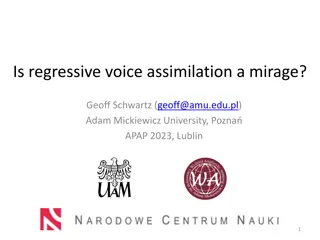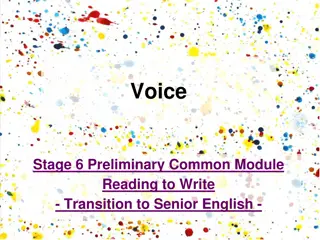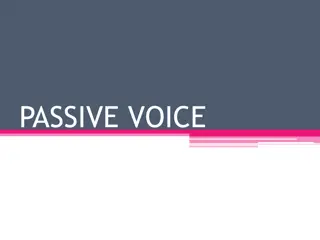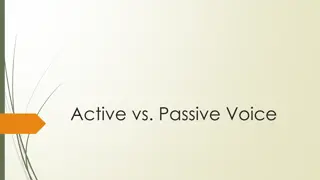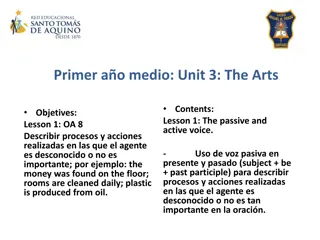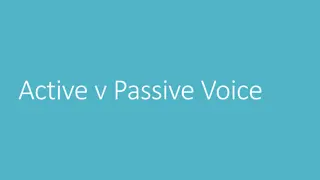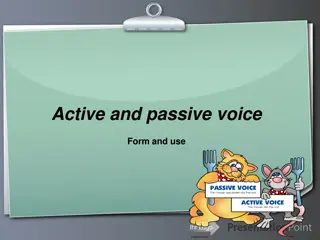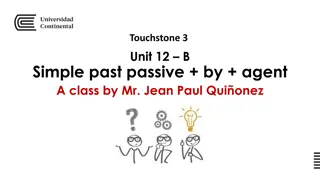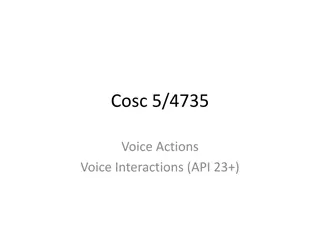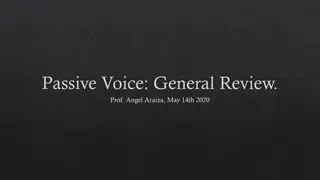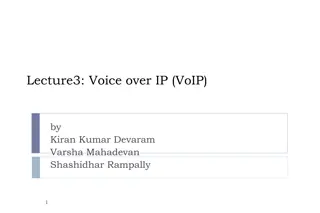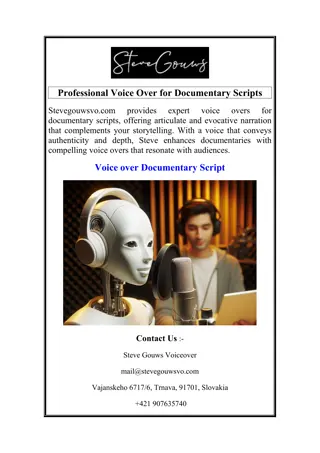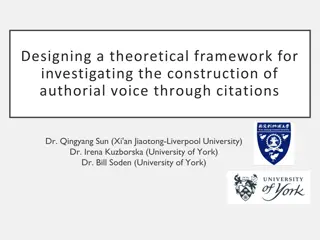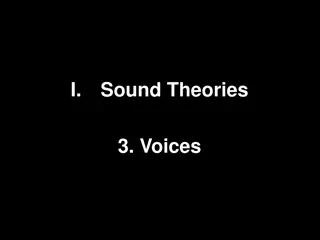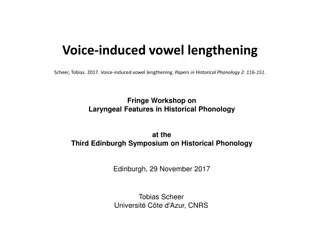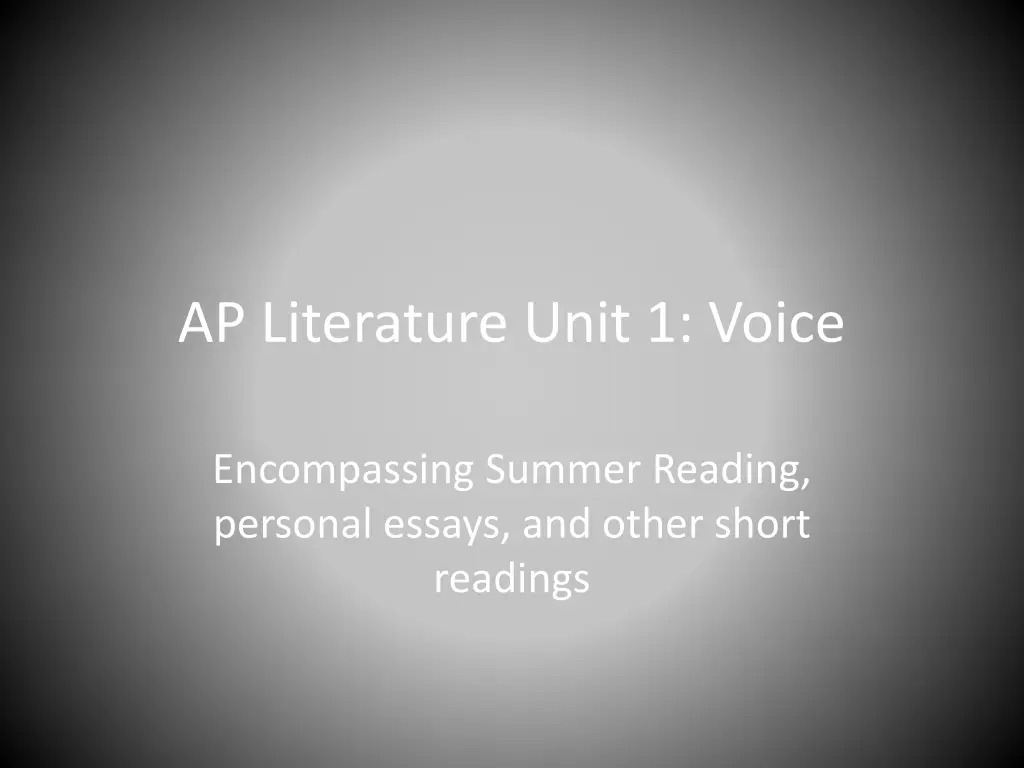
Understanding and Cultivating Literary Voice
Explore the concept of voice in literature through analysis of multicultural passages, character development, tone, and theme. Reflect on the importance of voice, identify unheard voices in society, and consider the uniqueness of your own voice in writing.
Download Presentation

Please find below an Image/Link to download the presentation.
The content on the website is provided AS IS for your information and personal use only. It may not be sold, licensed, or shared on other websites without obtaining consent from the author. If you encounter any issues during the download, it is possible that the publisher has removed the file from their server.
You are allowed to download the files provided on this website for personal or commercial use, subject to the condition that they are used lawfully. All files are the property of their respective owners.
The content on the website is provided AS IS for your information and personal use only. It may not be sold, licensed, or shared on other websites without obtaining consent from the author.
E N D
Presentation Transcript
AP Literature Unit 1: Voice Encompassing Summer Reading, personal essays, and other short readings
Learning Goal: Section 1 in Ntbk Students will be able to describe the techniques and methods that authors use to develop voice in various multicultural passages and stories, then analyze their purpose in creating character, tone, and theme, which will culminate in the creation of a college personal essay where they develop their own sense of voice.
Scale- Record Your Ranking 0- I don't know what "voice" is referring to in literature or writing. 1- I know what "voice" means in literature and/or writing, but I don't know what techniques are useful in developing it. 2- I know what "voice" looks like in literature and writing, and can identify techniques used to help create it. 3- I know what "voice" is used for in literature and writing and can interpret literary techniques to help label language, or "voice". 4- I know the importance of "voice" in literature and writing and can argue for the author's purpose of using varying literary techniques in creating a unique "voice".
Pre-write 1. What is YOUR definition of voice in reading and writing? 2. What do you think are some characteristics of an author s voice? You can name literary elements, or just describe how you think an author creates voice. 3. Why do you think voice is important in the study of literature?
Pre-write continued 4. Based on some of our introductory lessons or your own knowledge, name some unheard voices in our world today. What groups are still voiceless ? 5. Explain what obstacles are impeding the voices of those groups or individuals.
Pre-write continued 6. Explain why it might be important to understand voices that are unlike your own. 7. Do you think that YOU have a unique voice to share with others? What do you think is unique about your voice. If you do not feel you have a unique voice, why not?

